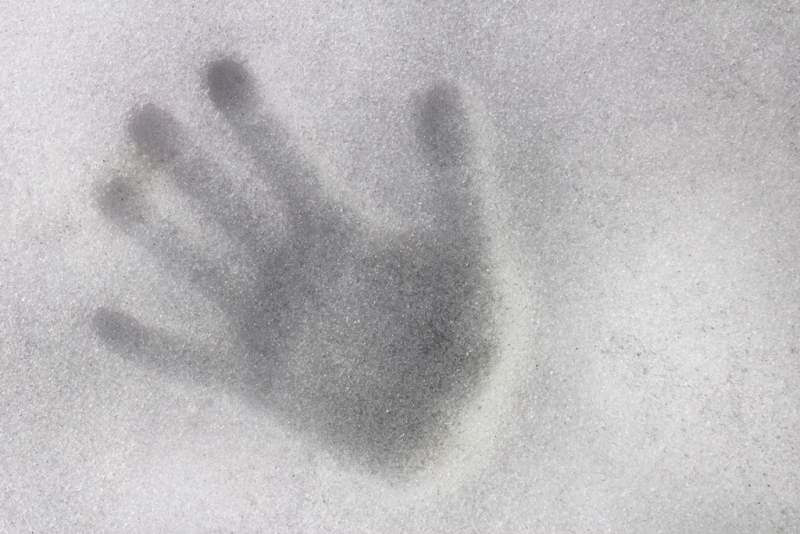Staying healthy can get especially difficult during the winter months, as the colder weather presents new threats to our immune system, complexion, heart health, and even mental health. If that wasn’t enough, environmental changes during the winter also jeopardize our balance and internal body temperature.
These new threats mean that we need to change our self-care habits in order to keep up with and maintain our overall health.
Here are six methods of self-care to keep in mind for surviving the winter.
Avoid germs
 There’s evidence that colder temperatures have a suppressing effect on our immune systems, increasing the opportunity for infection. Cold weather means that more people are spending time indoors within close contact, facilitating the spread of germs that lead to the flu or the common cold.
There’s evidence that colder temperatures have a suppressing effect on our immune systems, increasing the opportunity for infection. Cold weather means that more people are spending time indoors within close contact, facilitating the spread of germs that lead to the flu or the common cold.
You can protect your immune system from cold weather germs by following the advice of moms everywhere to wash and sanitize your hands frequently and remembering to cough or sneeze into your elbow. Also, it’s essential to get your yearly flu shot to combat the newest flu virus.
Switch up your skin-care routine
 The lower humidity level in the air during the winter months causes the skin’s natural moisture to evaporate more quickly. This causes the skin to become dry and tight, and can lead to flaking. Dry skin can also lead to itchiness, redness, fine lines, and deep cracks in the affected area. Breakouts and cold sores are also a symptom of dry skin.
The lower humidity level in the air during the winter months causes the skin’s natural moisture to evaporate more quickly. This causes the skin to become dry and tight, and can lead to flaking. Dry skin can also lead to itchiness, redness, fine lines, and deep cracks in the affected area. Breakouts and cold sores are also a symptom of dry skin.
You can protect your skin from the colder weather by using a moisturizer with an oil base to prevent evaporation. Creams are generally better than lotions, as lotions tend to wear off faster while a cream is generally thicker and better at protecting your skin. Protecting your face with a scarf or other winter gear can also do wonders in combating the cold’s influence on your skin.
To prevent breakouts, make sure to continue regularly washing your face before using your new moisturizer. To prevent unwanted cold sores, consider using a lip protectant that keeps your lips moisturized, or even consider prescription medication, like valacyclovir, that actively prevents cold sores from breakout out.
Protect your heart
 Colder temperatures cause an increase in blood pressure as the heart pumps faster to circulate blood throughout your system to keep your internal temperatures warm. The cold also acts as vasoconstrictor, narro wing the blood vessels and making it harder for blood to circulate.
Colder temperatures cause an increase in blood pressure as the heart pumps faster to circulate blood throughout your system to keep your internal temperatures warm. The cold also acts as vasoconstrictor, narro wing the blood vessels and making it harder for blood to circulate.
This poses a danger to your heart health. Deaths related to heart issues during the winter, from heart attacks to strokes and other cardiovascular attacks, account for 70 percent of all winter weather related deaths.
This is a particular risk for older people. Make sure to dress warmly whenever going out in the cold to encourage blood flow. If you already have a history of heart problems, it’s a good idea to avoid strenuous outdoor activity like shoveling, as it can cause unnecessary stress on your heart.
Remember your mental health
 For many people, the change of seasons brings on depressive symptoms due to the shorter days and lack of sunlight. The condition is known as seasonal affective disorder, or SAD. Scientists believe that SAD is caused by the brain making less serotonin due to the lack of sun. Serotonin is a neurotransmitter linked to brain pathways that regulate your mood. This makes it important to remember your mental health.
For many people, the change of seasons brings on depressive symptoms due to the shorter days and lack of sunlight. The condition is known as seasonal affective disorder, or SAD. Scientists believe that SAD is caused by the brain making less serotonin due to the lack of sun. Serotonin is a neurotransmitter linked to brain pathways that regulate your mood. This makes it important to remember your mental health.
SAD appears in normal depressive symptoms, including less energy, difficulty concentrating, fatigue, isolation, and sometimes weight gain. If you notice yourself experiencing any of these symptoms, it’s important to see your doctor for a proper assessment.
To treat SAD, your doctor may prescribe traditional antidepressants. You can also make an effort to get outside early in the morning to get more natural light as a way to encourage your brain to produce serotonin. If the dark winter months and your schedule makes this impossible, light therapy is another solution.
Otherwise, you can work to prevent depressive symptoms during the winter by making sure to eat a well-balanced diet, exercising, and staying involved with your social circle.
Stay mindful of environmental risks
 It’s important to be mindful when outdoors in the winter, as the winter weather causes environmental risks that can lead to injury. For example, icy sidewalks make falling much easier, and snowstorms cause the roads to become more dangerous.
It’s important to be mindful when outdoors in the winter, as the winter weather causes environmental risks that can lead to injury. For example, icy sidewalks make falling much easier, and snowstorms cause the roads to become more dangerous.
While you can’t do much to stop the weather, you can adjust your mindfulness and keep the environmental risks in mind when navigating the outdoors. Make sure to watch where you step, and possibly invest in boots with textured bottoms meant to increase grip. You can also invest in winter tires that work better on the road.
Watch for frostbite and hypothermia
 Frostbite and hypothermia aren’t only risks for the mountain climbers among us. Older adults, young children, and the chronically ill are all at increased levels of risk for body temperature related afflictions. Similarly to protecting your heart, make sure that you’re wearing warm clothes in order to protect against either frostbite or hypothermia. Make sure to keep an eye on your loved ones as well.
Frostbite and hypothermia aren’t only risks for the mountain climbers among us. Older adults, young children, and the chronically ill are all at increased levels of risk for body temperature related afflictions. Similarly to protecting your heart, make sure that you’re wearing warm clothes in order to protect against either frostbite or hypothermia. Make sure to keep an eye on your loved ones as well.
Stiffness in the neck, arms, or legs are all common signs that your body may be experiencing the early signs of hypothermia. Frostbite, on the other hand, generally occurs in the skin’s softer tissues, such as the fingers or toes. During frostbite, the water in these softer tissues begins to freeze. It’s essential in both cases to get into the warmth in order to raise your body temperature back up.
